#digestive problems
Explore tagged Tumblr posts
Text

#food allergies#food intolerance#ibs#digestive problems#digestive#stomach memes#food memes#chronic illness memes#chronic illness humor
52 notes
·
View notes
Text
Autism & GI Issues

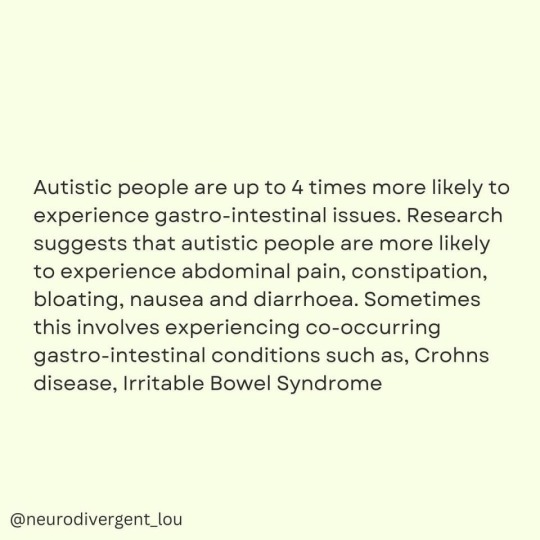
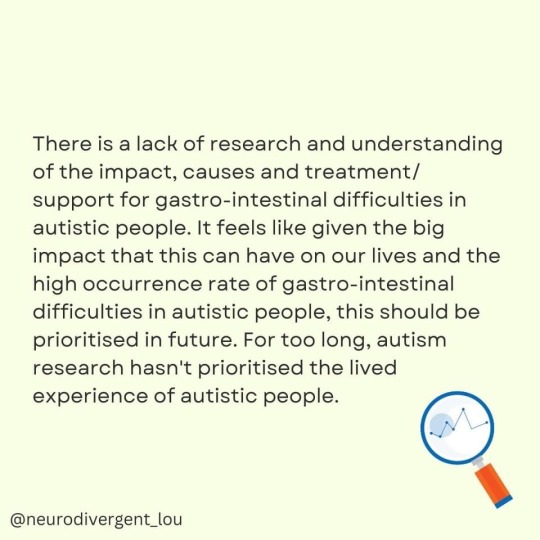
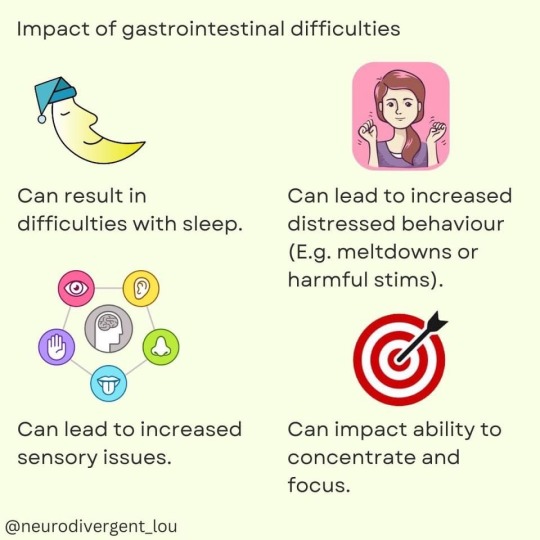

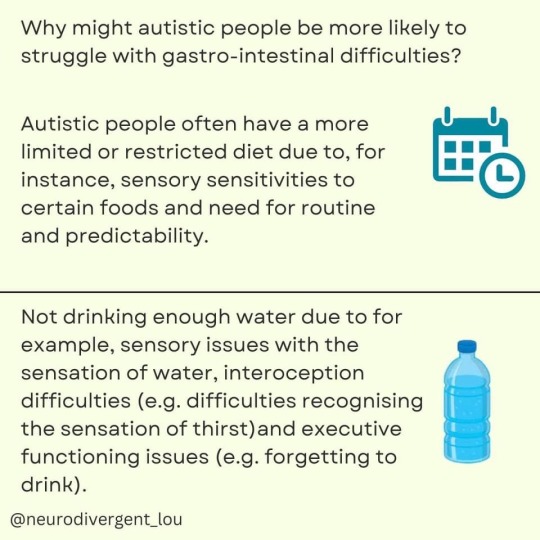
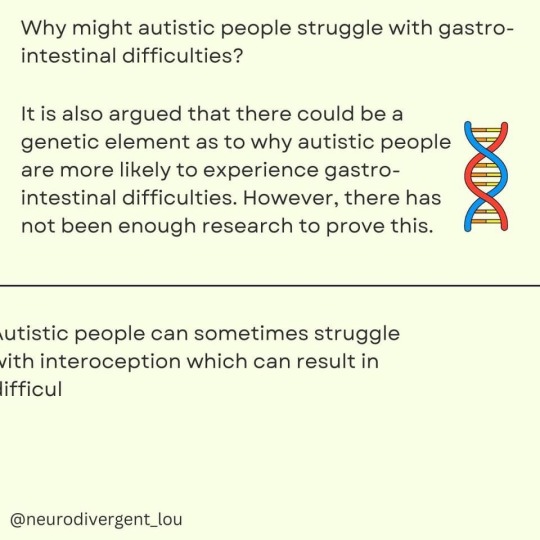
Neurodivergent_lou
#autism#actually autistic#autism and gastrointestinal issues#digestive problems#autism & physical health#source: neurodivergent_lou (Facebook)#feel free to share/reblog#tw bright colors#tw eye strain
122 notes
·
View notes
Text
Almost started crying on the phone because they said I had to reschedule my endoscopy but they rescheduled it for TOMORROW which works great because I'll have the two days off after that for recovery. I was thinking it was gonna be another six weeks or some shit but no fuck that I'm taking the tomorrow appointment. I waited 22 years for this shit.
#chronically ill#chronic illness#digestive condition#digestive problems#celiac disease#now to decide on the very last gluten containing food i'll eat for the last time
8 notes
·
View notes
Text
if anyone who struggles to eat because of digestive issues has words of advice on how to eat more (*for the purpose of having energy + gaining weight), i'd love to hear them.
i have weird yet mild (undiagnosed?) stomach issues, probably due to the small hiatal hernia my GI found. 90% of what i eat triggers the symptoms- my best guess is that physically filling food is the common factor. other than that, my symptoms are basically just acid reflux and the effects of having it chronically for ~9 months 24/7.
im on medication, which lessens most of it, and lemon honey tea has helps. surprisingly, i can eat cherry tomatoes by the handful and the last time i had a banana it was awful and triggering. so if your advice can be found on the first page of a 'foods for acid reflux' google search, uh, no thanks lol.
i also have adhd and an inconsistent taste palate, so im hesitant to start any structured diet or to plan meals days in advance. (but its not completely off the table)
#medical advice#medical talk#digestive issues#digestive problems#digestive disorders#hiatal hernia#i know tumblr isn't a doctor but my next appt is some time away#and if youve followed this blog you know i dont 100% trust doctors lmao#i just want to hear whats worked for others like me#i feel pretty alone right now because all this#acid reflux#gerd treatment#actually disabled#actually adhd#actually autistic#actually audhd#weight gain diet#IFUCKINGHATEDIETCULTURE#coughs. anyway.
13 notes
·
View notes
Text
...now I have acid reflux.
At least the lasagna was good.
4 notes
·
View notes
Text
Gut Health and Mental Health: Understanding the Connection

IntroductionDid you know that your gut and brain are constantly communicating with each other? This connection, known as the gut-brain axis, plays a crucial role in both your mental and physical health. Recent studies have shown that maintaining good gut health can significantly improve mental well-being. Whether it's managing stress, anxiety, or depression, your digestive system could be a key player in how you feel. Consulting experts, like the top 10 gastroenterologist in Surat, can help ensure your gut stays healthy, which in turn supports your overall mental health.
The Gut-Brain Connection: How Does It Work?
The gut-brain axis is a two-way communication network between the gastrointestinal (GI) system and the brain. This connection happens through the vagus nerve, immune pathways, and gut microbiota. Here’s a closer look:
Vagus Nerve: This major nerve acts like a highway, transmitting signals between the brain and gut.
Gut Microbiota: Your gut houses trillions of microorganisms that affect everything from digestion to mood regulation.
Chemical Messengers: The gut produces neurotransmitters like serotonin and dopamine, which influence mood and emotions.
When your gut is unhealthy, the communication between your gut and brain can falter, leading to issues like anxiety, depression, and even cognitive difficulties.
How Gut Health Affects Mental Health
A healthy gut supports your mental well-being in several ways:
Regulates Mood: About 90% of the body’s serotonin, a "feel-good" hormone, is produced in the gut. An imbalanced gut can lead to mood swings or depression.
Reduces Stress Levels: The gut microbiota interacts with the stress-response system, helping to regulate cortisol levels.
Improves Cognitive Function: Healthy gut bacteria promote better focus, memory, and overall cognitive function.
On the other hand, poor gut health can exacerbate mental health problems. Symptoms like bloating, indigestion, and irregular bowel movements often coincide with higher levels of anxiety or stress.
Signs of Poor Gut Health
It’s essential to recognize when your gut might need attention. Common signs include:
Persistent digestive issues (e.g., bloating, constipation, diarrhea)
Food intolerances or sensitivities
Unexplained fatigue or sleep disturbances
Frequent mood swings, anxiety, or depression
Skin conditions like acne or eczema
If you notice these symptoms, it might be time to consult a gastroenterologist in Surat to evaluate your gut health.
Steps to Improve Gut Health for Better Mental Well-Being
1. Eat a Balanced Diet
Focus on whole, nutrient-rich foods that support healthy gut bacteria:
Fiber: Found in fruits, vegetables, and whole grains, fiber helps feed beneficial bacteria.
Probiotics: Yogurt, kefir, and fermented foods like kimchi and sauerkraut can restore healthy gut flora.
Prebiotics: Foods like garlic, onions, and bananas provide food for probiotics to thrive.
2. Stay Hydrated
Drinking plenty of water supports digestion and helps maintain a healthy gut lining, preventing toxins from entering the bloodstream.
3. Manage Stress
Chronic stress can disrupt gut health. Techniques like mindfulness meditation, yoga, or deep breathing exercises can help reduce stress levels.
4. Exercise Regularly
Physical activity not only improves mental health but also boosts the diversity of gut microbiota. Aim for at least 30 minutes of moderate exercise most days of the week.
5. Avoid Harmful Substances
Limit your intake of processed foods, excessive alcohol, and unnecessary antibiotics, as they can harm gut bacteria.
6. Get Adequate Sleep
Sleep and gut health are closely linked. Aim for 7–9 hours of quality sleep per night to support a healthy gut-brain connection.
Gut Health Disorders Linked to Mental Health
Certain gut-related conditions are more likely to affect your mental health. These include:
Irritable Bowel Syndrome (IBS): This common condition often coexists with anxiety or depression.
Leaky Gut Syndrome: When the gut lining becomes too permeable, it can trigger inflammation and mental health issues.
Small Intestinal Bacterial Overgrowth (SIBO): An overgrowth of bacteria in the small intestine can lead to brain fog and mood swings.
Proper diagnosis and treatment of these conditions can significantly improve both gut and mental health. Consulting the top 10 gastroenterologist in Surat ensures you get expert advice tailored to your needs.
The Role of Probiotics and Supplements
Probiotics have gained popularity for their potential mental health benefits. These “good bacteria” can:
Improve symptoms of anxiety and depression
Enhance focus and cognitive function
Reduce inflammation in the gut and brain
Supplements like omega-3 fatty acids, vitamin D, and magnesium can also support the gut-brain axis. However, always consult a healthcare provider before starting any supplement regimen.
When to Seek Professional Help
If lifestyle changes don’t improve your gut health, or if your mental health continues to decline, it’s crucial to seek professional help. Persistent symptoms might indicate an underlying issue that requires medical attention.
A gastroenterologist can perform tests like stool analysis, endoscopy, or breath tests to identify gut-related problems. For comprehensive care, reach out to a trusted gastroenterologist in Surat, who can guide you through effective treatment options.
Final Thoughts
Your gut and brain share a profound connection, influencing each other in ways that impact your overall health. By taking steps to improve your gut health, you can enhance your mental well-being and vice versa. Remember, small changes in diet, stress management, and physical activity can lead to significant improvements.
If you’re experiencing persistent gut or mental health issues, don’t hesitate to seek professional guidance. A proactive approach can help you maintain a healthier gut-brain balance, paving the way for a happier, more vibrant life.
#gut health#health#digestion#digestivehealth#digestive health#gastrologist#stomach problems#healthylifestyle#digestive problems#mental health
1 note
·
View note
Text
0 notes
Text
Introduction
In our quest for overall well-being, the ancient wisdom of Ayurveda has increasingly gained recognition for its holistic approach. This article digs into the world of Ayurveda, specifically focusing on how it deals with stomach problems, and digestive balance and contributes to the proper functioning of the body.
Understanding Ayurveda: A Holistic Science
Foundations of Ayurveda
Ayurveda, an ancient Indian system of medicine, views the body as a dynamic and interconnected system. It recognizes three fundamental energies, or doshas—Vata, Pitta, and Kapha—that govern various physiological and psychological aspects. According to Ayurveda, digestion plays a pivotal role in maintaining the delicate balance of these doshas.
Key Principles of Digestion in Ayurveda
The Agni Concept
Ayurveda places a significant emphasis on 'Agni,' the digestive fire. This symbolic fire represents the power within the body responsible for breaking down and assimilating nutrients. Finding digestive balance with Ayurveda involves nurturing and maintaining this,Agni.
Individual Constitution (Prakriti)
Ayurveda recognizes that each person has a unique constitution, or prakriti, which influences digestion. Understanding one's prakriti allows personalized dietary and lifestyle recommendations to enhance digestive well-being and inhibit stomach problems.
Herbs and Spices for Digestive Health in Ayurveda
Triphala: The Three Fruits Blend
Triphala, a combination of three fruits—Amalaki, Bibhitaki, and Haritaki—is a cornerstone of Ayurvedic treatment for digestive care. This powerful herbal formula not only supports digestion but also detoxifies and rejuvenates the digestive tract.
Bhringraj: Bhringraj plays a vital role in the ayurvedic treatment and management of gastrointestinal issues like diarrhea and dysentery. The antispasmodic properties present in Bhringraj leaves work to inhibit contractions or spasms in the stomach, intestines, and urinary bladder, providing relief from stomach problems.
Giloy: It aids in alleviating digestion-related issues such as indigestion, hyperacidity, and flatulence, attributed to its digestive properties known as Pachan.
Ayurvedic Dietary Guidelines for Digestive Harmony
Eating According to Dosha
Ayurveda suggests adapting your diet based on your dominant dosha. Vata individuals may benefit from warm and nourishing foods, while Pitta types thrive on cooling and hydrating choices. Kapha individuals may find balance with light and easily digestible options.
Mindful Eating Practices
Beyond specific food choices, Ayurveda emphasizes mindful eating practices. This includes savoring each bite, eating in a calm environment, and being attentive to one's body signals of hunger and satiety.
Lifestyle Practices for Optimal Digestion
Balancing Daily Routines (Dinacharya)
Ayurveda places importance on establishing a daily routine, or dinacharya, to synchronize bodily functions with the natural rhythms of the day. This includes regular meal times, ensuring the body is prepared for optimal digestion.
Yoga and Digestive Health
The practice of yogaoffers asanas (postures) and pranayama (breathing exercises) specifically beneficial for digestive balance and alleviating stomach problems. Incorporating these practices into your routine enhances overall well-being.
Digestive Imbalances and Ayurvedic Solutions
Indigestion and Ama
Ayurveda recognizes indigestion as the accumulation of 'ama,' or toxins, in the body. Digestive imbalances manifest as symptoms such as bloating, gas, and sluggishness. Ayurvedic remedies often involve cleansing practices, dietary adjustments, and herbs to eliminate ama.
Ayurvedic Detoxification (Panchakarma)
Panchakarma, a set of purification therapies in Ayurveda, aims to eliminate accumulated toxins from the body. This intensive detoxification process rejuvenates the digestive system and promotes overall vitality.
Incorporating Ayurveda into Your Daily Life
Morning Rituals for Digestive Harmony
Starting the day with warm water and lemon, a common Ayurvedic practice, aids in kickstarting the digestive system. This simple ritual helps flush out toxins and prepares the digestive tract for the day ahead.
Udar Sanjivani - Key to all Stomach Problems
Incorporating Udar Sanjivani into your daily routine can provide gentle support for digestion. This Ayurvedic treatment is infused with herbs known for their soothing effect, promoting digestive balance.
Udar Sanjivani Ayurvedic Treatment is made with powerful herbs that are great for your stomach. With ingredients like Bhringraj, Punarnava, Rohitak, Giloy, Kasaundi, Kutki, Vaividang, and more, it's pure and effective.
If you often have stomach problems, Udar Sanjivani is perfect for you. It starts working from the first dose, giving immediate and long-lasting relief from issues like acidity, gas, constipation, indigestion, bloating, and burning sensations. It works naturally with your body, providing lasting relief from various stomach problems.
Conclusion: Digestive Wellness with Ayurveda
By adopting Ayurvedic principles and integrating time-tested practices, individuals can pave the way for ideal digestive health and overall well-being. The combination of mindful eating, lifestyle practices, and Ayurvedic remedies offers a rounded approach to maintaining a harmonious digestive system.
In search of a holistic approach, Udar Sanjivani Ayurvedic Treatment emerges as a noteworthy ally. Enriched with potent herbs like Bhringraj, Punarnava, Rohitak, Giloy, and more, Udar Sanjivani stands out for its immediate and enduring effects on digestive issues and stomach problems. From acidity to bloating, it works in tandem with the body's natural processes, providing sustained relief. Incorporating Udar Sanjivani into daily life becomes a gentle yet powerful step towards digestive wellness, complementing the great teachings of Ayurveda. Reference:- https://www.udarsanjivani.com/blog/discovering-digestive-balance-with-ayurveda.html
#stomach pain#stomach pain medicine#stomach pain tablet#medications for stomach pain#gastrointestinal disease#stomach ache#gas problem#stomach acid#gut health#gastric problem symptoms#indigestion#gerd treatment#stomach bloating#lower abdominal pain#stomach pain reasons#stomach gas#gassy stomach#digestive problems#stomach pain causes#vomiting sensation
0 notes
Text
I keep worrying that people will take me getting sick from their food as an insult your food was lovely but unfortunately the devil resides in my digestive system
0 notes
Text
guys I had more gluten and dairy than usual.
I’m going to regret it tomorrow but today we party!!
0 notes
Text
Use clean water and make sure food is cooked properly. If they catch the stomach flu, keep them hydrated with water or special drinks that help with hydration. Avoid sharing utensils or food with others who are sick. If they have symptoms, offer bland foods like bananas or rice to help their stomach feel better. You can also buy mixed Saunf online.
0 notes
Text
Discover the Best Ayurveda Clinic for Effective Digestive Problem Treatment

Ayurvedic offers best treatment methods for Digestive Problems. Ayurvedic remedies focuses on addressing the root causes of the condition. Digestive disorders are conditions that affect the digestive system, which includes the mouth, stomach, small intestine & large intestine. Natural herbs used in Ayurvedic medicine are good for the digestive system. Treatment for Digestive Disorders in Ayurveda includes Panchakarma therapies, tailored diet plans, suitable exercises, and lifestyle adjustments to promote overall digestive health.
Importance of Digestion
Digestion is important for breaking down food into nutrients, that provide our body with the energy and resources needed for growth and cell repair. Food and drink must be changed into smaller molecules of nutrients before the blood absorbs them and carries them to cells throughout the body. The body breaks down nutrients from food and drink such as carbohydrates, protein, fats, and vitamins to support overall health and wellness.
The digestive process initiates in the mouth, where the production of saliva is triggered even at the thought of eating. This complex system carries out three essential functions: mixing food, propelling it through the digestive tract via peristalsis, and breaking down food into smaller molecules with the help of chemicals.
Some Common Digestive Disorders
Gastroesophageal Reflux Disease (GERD) : Gastroesophageal reflux disease (GERD) occurs when stomach acid repeatedly flows back into the tube connecting your mouth and stomach (esophagus). This backwash (acid reflux) can irritate the lining of your esophagus.
Peptic ulcers: Peptic ulcers are open sores that develop on the lining of the stomach or small intestine.
Irritable Bowel Syndrome (IBS): An intestinal disorder causing pain in the stomach, diarrhea, constipation, and change in the appearance of stool.
Inflammatory Bowel Disease (IBD) : It is a disorders in which the intestines become inflamed.
Constipation: Constipation is a condition in which a person has uncomfortable or infrequent bowel movements.
Diarrhea : Diarrhoea is usually caused by a virus, or sometimes, contaminated food. Less frequently, it can be a sign of another disorder, such as inflammatory bowel disease or irritable bowel syndrome.
Gallstones: Gallstones are hardened deposits of bile. Gallstones can vary in size and number and may or may not cause symptoms.
If you are struggling with digestive problems, it is crucial to consult with the best Ayurvedic doctor for accurate diagnosis and treatment. Our proven therapies offer a holistic approach to improving digestive health, providing a natural solution to your issues. Experience the benefits of ancient Indian healing techniques, supported by modern scientific research, at The Yogshala clinic. Discover relief from digestive issues and enhance your overall well-being at the best Ayurvedic clinic in Ghaziabad.
Ayurveda Treatment For Digestive Disorders
Ginger: Gingerol, a natural component of ginger root, benefits gastrointestinal motility ― the rate at which food exits the stomach and continues along the digestive process.
Turmeric: Turmeric (curcumin) enhances diversity of the human microbiome and improves digestion. Curcumin may also work by fortifying the intestinal barrier.
Jaggery: It prevents constipation due to its laxative property and activates digestive enzymes. As per Ayurveda, eating Jaggery daily after meals improves digestion due to its Ushna (hot) property.
Fennel: Fennel seed essential oils stimulates the secretion of digestive juices and enzymes that improve your digestion.
These herbs have versatile applications, such as in teas, powders, capsules, or incorporated into Ayurvedic formulations. It is crucial to seek guidance from a knowledgeable and renowned best Ayurvedic Doctor to identify the most effective herbs and appropriate dosage tailored to your individual requirements. For the best results, consider consulting the Best Ayurvedic Doctor in Ghaziabad at the top-rated Ayurvedic Clinic in Ghaziabad.
Ayurvedic Treatment For Digestion Related Problems
Panchakarma therapy offers a comprehensive approach to detoxify the body and improve digestive health. This ancient practice involves five detoxification methods, including medicated enemas, induced vomiting, purgation, and bloodletting.
By incorporating Panchakarma techniques into your wellness routine, you can strengthen your digestive system and eliminate toxins that may be causing discomfort. Treatments such as Abhyangam and Sirodhara further support your body's natural detoxification process and promote overall well-being.
Find relief for your digestive issues and experience the benefits of Ayurvedic medicine at the best Ayurvedic clinic in Ghaziabad. Consult with the top Ayurvedic doctor in the area to start your journey toward improved digestive health today.
ORIGINAL SOURCE
#best ayurvedic clinic in Ghaziabad#Best Ayurvedic Doctor in Ghaziabad#Digestive Disorders in Ayurveda#the top Ayurvedic doctor#Panchakarma therapy#Digestive Problems
0 notes
Text
So, very promising news:
The celiacs antibody came back. The celiacs antibodies was in the normal range BUT the transglutanimase was higher than normal. It's supposed to be less than 7.0 but mine was 13.6 which possibly means that my digestive problems are autoimmune according to google.
I'm waiting to hear back from my doctor. I just got the tests back. Who knows if it actually is the problem but if it is, I am personally gonna fight every single doctor that failed to do the bare minimum of one test. Granted we don't know WHICH disorder it is but the knowledge that it's probably autoimmune is more than any of my other GI doctors did.
4 notes
·
View notes
Text

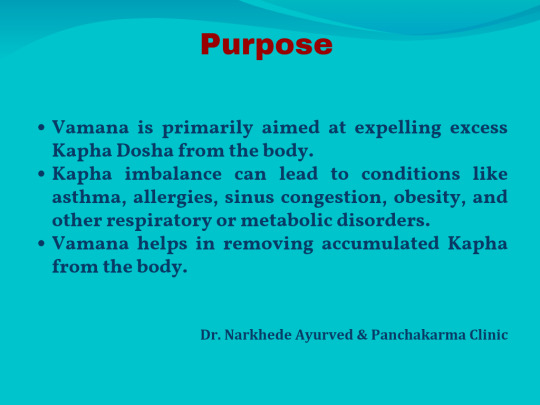
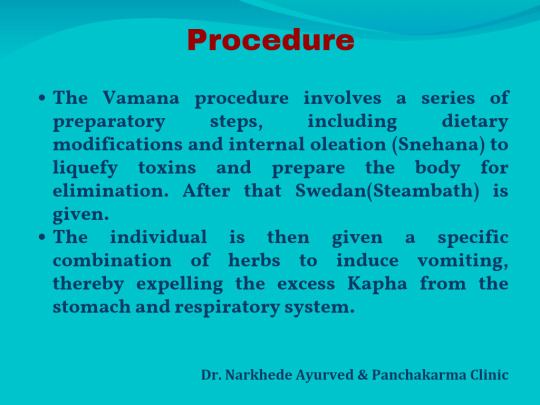

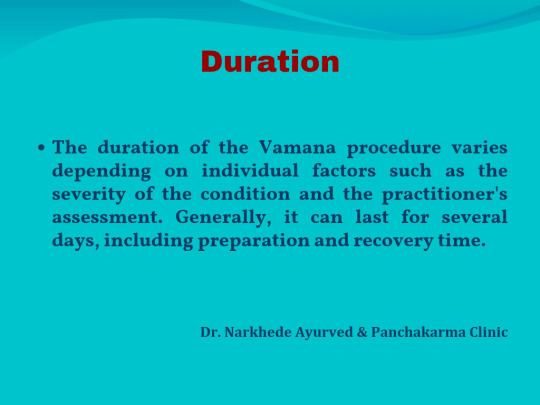





Vamana Panchakarma is a detoxification therapy in Ayurveda that involves inducing controlled vomiting to eliminate toxins from the body. It's part of the five-fold detoxification therapy called Panchakarma. During Vamana, a person undergoes preparatory procedures followed by the ingestion of medicated substances to induce vomiting. This process helps remove excess mucus, toxins, and other waste products from the upper respiratory tract and digestive system, promoting overall health and well-being. It's often recommended for conditions like asthma, allergies, skin disorders, and digestive issues. However, it should only be performed under the guidance of a qualified Ayurvedic practitioner.
#panchakarma#ayurvedic doctor#ayurvedictreatment#panchakarma treatment#ayurvedicclinic#skin treatment#skin problems#allergy treatment#digestive problems#asthma#bronchitis#rejuvenate#detoxification#detoxyourbody#ayurveda#weight loss
0 notes
Text
I saw this on Facebook and immediately wanted to make a poll

5K notes
·
View notes
Text
Maintaining Digestive Health with Age: Key Lifestyle Adjustments

As we grow older, maintaining digestive health becomes increasingly important. The way our digestive systems work can be affected by age-related changes in the body as well as lifestyle choices. You can maintain the integrity of your general health and gut health by being aware of these changes and making the necessary changes. For expert advice, you can consult the top 10 gastroenterologist in Surat, who specialize in digestive health across all age groups. Let's explore some crucial advice for maintaining optimal gut health as you age.
Why Digestive Health Changes with Age
With age, several factors can contribute to changes in digestive health, such as:
Slower Digestive Process: The muscles in your digestive tract may weaken, slowing the movement of food and leading to issues like constipation.
Reduced Enzyme Production: The body may produce fewer enzymes needed to digest food, which can cause bloating or indigestion.
Medication Side Effects: Many older adults take medications that can affect the digestive system, leading to discomfort or other issues.
Lifestyle and Diet: Sedentary habits and a lack of fiber in the diet are common contributors to poor digestive health.
The first step in taking preventative action to preserve the health of your digestive system is recognizing these changes.
Key Lifestyle Adjustments for Digestive Health
Here are some practical strategies to keep your digestive system in good shape as you age:
1. Eat a Balanced Diet
A healthy diet rich in nutrients is crucial for maintaining a strong digestive system.
Focus on Fiber: Foods like whole grains, fruits, and vegetables help regulate bowel movements and prevent constipation.
Stay Hydrated: Drinking plenty of water aids digestion and helps keep the digestive tract functioning smoothly.
Limit Processed Foods: These are often high in fat, sugar, and salt, which can slow digestion and cause inflammation.
Incorporate Probiotics: Yogurt, kefir, and other fermented foods are excellent sources of good bacteria that support gut health.
2. Stay Active
Physical activity is not only good for overall health but also plays a crucial role in maintaining digestive health.
Exercise Regularly: Activities like walking, yoga, and swimming can stimulate digestion and reduce the risk of constipation.
Improve Posture: Sitting up straight during and after meals helps food move through the digestive tract more effectively.
3. Manage Stress
Chronic stress can negatively impact your digestive system, leading to issues like acid reflux or irritable bowel syndrome (IBS).
Practice Relaxation Techniques: Deep breathing, meditation, and mindfulness can lower stress levels and improve digestion.
Maintain a Regular Schedule: Eating meals at the same times each day helps regulate your digestive system.
4. Get Regular Check-Ups
As you age, it’s essential to stay proactive about your digestive health by consulting with a specialist.
Screenings and Tests: Regular check-ups, including screenings for colon cancer or other gastrointestinal conditions, can help detect problems early.
Consult Experts: A gastroenterologist in Surat can provide personalized advice and treatment for maintaining your digestive health.
Common Digestive Issues in Older Adults
Here are some common digestive issues that aging individuals may face, along with tips on managing them:
1. Constipation
Causes: A lack of fiber, dehydration, or reduced physical activity.
Solutions: Increase your fiber intake, stay hydrated, and exercise regularly.
2. Acid Reflux
Causes: Weakened muscles at the esophagus-stomach junction.
Solutions: Eat smaller meals, avoid lying down after eating, and limit trigger foods like caffeine and spicy dishes.
3. Diverticulosis
Causes: Small pouches form in the colon due to a low-fiber diet.
Solutions: Increase fiber intake and avoid processed foods.
4. Lactose Intolerance
Causes: Reduced production of lactase, the enzyme that digests lactose.
Solutions: Choose lactose-free dairy options or use lactase enzyme supplements.
Tips for Long-Term Gut Health
Here are some additional lifestyle adjustments to consider:
Avoid Overeating: Large meals can overwhelm your digestive system. Opt for smaller, more frequent meals instead.
Chew Thoroughly: Proper chewing breaks food into smaller particles, making it easier to digest.
Limit Alcohol and Caffeine: These substances can irritate the digestive tract and cause discomfort.
Quit Smoking: Smoking has been linked to several digestive disorders, including heartburn and ulcers.
When to Seek Help
It’s essential to recognize when it’s time to consult a professional. Symptoms such as persistent abdominal pain, changes in bowel habits, unexplained weight loss, or difficulty swallowing should not be ignored. A consultation with one of the top 10 gastroenterologist in Surat can provide clarity and peace of mind.
Conclusion
Maintaining digestive health as you age requires a proactive approach and thoughtful lifestyle adjustments. A balanced diet, regular physical activity, stress management, and periodic check-ups are all key to a healthy gut. By incorporating these changes into your routine and seeking guidance from specialists, you can ensure your digestive system continues to function optimally.
Your digestive health is a cornerstone of your overall well-being, so take the necessary steps to keep it strong and resilient, no matter your age.
#digestive health#digestion#gut health#health#gastrologist#stomach problems#healthylifestyle#digestive problems
1 note
·
View note